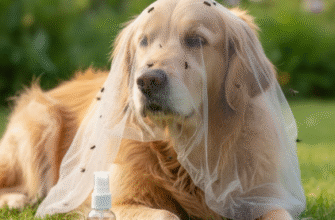Keeping our furry companions healthy and happy is a top priority for any pet owner. Alongside good nutrition, regular check-ups, and plenty of love, vaccinations play a crucial role in preventative healthcare. They protect our pets from a range of potentially serious, and sometimes fatal, infectious diseases. However, navigating the world of pet vaccines can sometimes feel confusing. You might hear your veterinarian talk about “core” versus “lifestyle” vaccines. Understanding this distinction is key to making informed decisions about your pet’s health in partnership with your vet.
Understanding Core Vaccinations
Think of core vaccinations as the essential foundation of your pet’s disease protection strategy. These vaccines are recommended for nearly all pets, regardless of their specific lifestyle, geographic location, or frequency of contact with other animals. Why? Because they guard against diseases that are widespread, easily transmissible, and can cause severe illness or even death. The specific diseases covered by core vaccines differ slightly between dogs and cats, but the principle remains the same: protect against the most common and dangerous threats.
Core Vaccines Typically Recommended for Dogs:
- Canine Distemper Virus (CDV): A highly contagious viral disease affecting the respiratory, gastrointestinal, and nervous systems. It can be fatal, especially in puppies.
- Canine Adenovirus (CAV Types 1 & 2): CAV-1 causes infectious canine hepatitis, a serious liver disease. CAV-2 is a cause of infectious tracheobronchitis (kennel cough). The vaccine protects against both types.
- Canine Parvovirus (CPV): A severe and often deadly gastrointestinal virus, particularly dangerous for puppies and unvaccinated dogs. It causes severe vomiting, diarrhea, and dehydration.
- Rabies Virus: A fatal neurological disease affecting mammals, including humans. Vaccination is legally required in most areas due to the public health risk.
These are often administered in a combination vaccine (like DHPP or DAPP) followed by the Rabies vaccine.
Core Vaccines Typically Recommended for Cats:
- Feline Panleukopenia Virus (FPV): Also known as feline distemper, this is a highly contagious and often fatal parvovirus affecting kittens severely. It attacks rapidly dividing cells, primarily in the bone marrow and intestines.
- Feline Herpesvirus 1 (FHV-1): A major cause of upper respiratory infections (feline viral rhinotracheitis) and eye problems (conjunctivitis, corneal ulcers) in cats.
- Feline Calicivirus (FCV): Another common cause of feline upper respiratory infections and oral disease (ulcers on the tongue). Different strains can cause varying severity, including a rare but severe systemic form.
- Rabies Virus: As with dogs, rabies is a fatal neurological disease, and vaccination is crucial for protecting both the cat and public health. It’s legally required in many places, even for indoor-only cats, as bats (a common rabies carrier) can get indoors, or an indoor cat could potentially escape.
These feline core vaccines are often given as a combination shot (FVRCP) along with the separate Rabies vaccine.
The initial series for puppies and kittens involves multiple boosters, followed by adult boosters. The frequency of adult boosters for core vaccines (after the first year) is an area of ongoing discussion and may vary (e.g., every 3 years for some) based on vaccine type and veterinary guidance.
Exploring Lifestyle Vaccinations
Lifestyle vaccinations, sometimes called non-core vaccines, are those that may be recommended for your pet based on their individual risk of exposure to specific diseases. Unlike core vaccines, these aren’t universally necessary for every single dog or cat. The decision to administer a lifestyle vaccine depends heavily on factors like:
- Geography: Some diseases are more prevalent in certain regions (e.g., Lyme disease in tick-heavy areas).
- Environment: Does your pet spend a lot of time outdoors, especially in wooded areas or near standing water?
- Activities: Does your dog frequent dog parks, boarding kennels, grooming facilities, or doggy daycare? Does your cat go outdoors or live with other cats?
- Travel Plans: Will you be traveling with your pet to areas where certain diseases are more common?
Your veterinarian is the best person to assess these risk factors and help you decide which, if any, lifestyle vaccines are appropriate for your companion.
Common Lifestyle Vaccines for Dogs:
- Bordetella bronchiseptica: A primary cause of kennel cough, a highly contagious respiratory infection common where dogs congregate (kennels, shelters, dog parks). Often required by boarding facilities.
- Leptospirosis: A bacterial disease spread through the urine of infected animals (wildlife like raccoons, skunks, rodents) contaminating soil and water. It can cause severe kidney and liver damage and is zoonotic (transmissible to humans). Risk is higher for dogs who swim in or drink from natural water sources or live in areas with wildlife.
- Lyme Disease (Borrelia burgdorferi): Transmitted by certain types of ticks (primarily deer ticks). Causes fever, lethargy, joint pain/lameness. More common in specific geographic regions.
- Canine Influenza Virus (CIV): A contagious respiratory illness, similar to the flu in humans. Different strains exist (H3N8 and H3N2). Recommended for dogs with high exposure to other dogs, particularly during outbreaks.
Common Lifestyle Vaccines for Cats:
- Feline Leukemia Virus (FeLV): A serious viral disease that weakens the immune system, leading to secondary infections, anemia, and cancers. Spread through close contact (grooming, sharing bowls, bite wounds). Recommended for all kittens (due to unknown future lifestyle) and adult cats that go outdoors or have contact with cats of unknown FeLV status. Indoor-only cats in stable households may not need it after the initial kitten series.
- Feline Immunodeficiency Virus (FIV): Another virus that compromises the immune system, similar in effect to HIV in humans (though not transmissible to humans). Spread primarily through deep bite wounds, more common in outdoor, unneutered male cats. Vaccination is less common and its effectiveness debated; it can also interfere with standard FIV testing. Decisions about this vaccine require careful discussion with your vet.
- Chlamydophila felis: A bacterial infection primarily causing conjunctivitis (inflammation of the tissues around the eye). Can also contribute to mild upper respiratory signs. Recommended mainly for cats in multi-cat environments like shelters or catteries where the infection is persistent.
- Bordetella bronchiseptica: While less common than in dogs, it can cause upper respiratory signs in cats, particularly in crowded environments like shelters.
Why Tailoring Vaccination Matters
The core vs. lifestyle approach allows veterinarians to tailor a preventative health plan specifically for your pet. It ensures that all pets receive protection against the most dangerous and prevalent diseases (core vaccines) while avoiding potential over-vaccination by only giving lifestyle vaccines when the risk of exposure justifies it. Every medical procedure, including vaccination, carries a small potential for side effects, so the goal is always to provide the maximum benefit with the minimum necessary intervention. This individualized approach helps achieve that balance.
Important Vet Consultation: Vaccine recommendations are not one-size-fits-all. Your pet’s age, medical history, lifestyle, and geographic location all play a vital role in determining the most appropriate vaccination schedule. Always discuss your pet’s specific circumstances and risk factors thoroughly with your veterinarian. They are your best resource for creating a personalized and effective vaccination plan. Never rely solely on generalized information found online.
The Veterinarian’s Crucial Role
Your veterinarian is your partner in making these important health decisions. During wellness exams, they will perform a risk assessment for your pet. This involves asking questions about where your pet lives, plays, and travels, and whether they interact with other animals. Based on this assessment, combined with knowledge of disease prevalence in your local area and your pet’s overall health, your vet will recommend a specific vaccination protocol.
They will also discuss the appropriate timing for vaccinations. Puppies and kittens require an initial series of vaccines starting at around 6-8 weeks of age, given every 3-4 weeks until they are about 16-20 weeks old. This is crucial to provide protection as the immunity they received from their mother wears off. After the initial series, booster schedules vary. Some vaccines require annual boosters, while others, particularly some core vaccines, may provide immunity for 3 years or longer in adult pets after the initial adult booster. Your vet will track this schedule and remind you when boosters are due.
A Note on Vaccine Reactions
It’s natural to have questions about vaccine safety. The vast majority of pets handle vaccinations without any problems. When reactions do occur, they are typically mild and short-lived. You might notice:
- Soreness or mild swelling at the injection site
- Slight tiredness or lethargy for a day or two
- Mild fever
- Brief loss of appetite
Serious adverse reactions are very rare, but they can happen. If you notice any concerning signs after vaccination, such as persistent vomiting or diarrhea, difficulty breathing, facial swelling, hives, or collapse, contact your veterinarian or an emergency animal hospital immediately.
Verified Benefit: Decades of veterinary research and practice have shown that the benefits of vaccinating pets against serious infectious diseases far outweigh the small risks of adverse reactions for the vast majority of animals. Vaccinations have dramatically reduced the incidence of diseases like distemper, parvovirus, and rabies. They are a cornerstone of preventative pet healthcare.
Vaccinations are a safe and effective way to protect your beloved dog or cat from many common and dangerous diseases. By understanding the difference between core and lifestyle vaccines and working closely with your veterinarian, you can ensure your pet receives the protection they need based on their unique life circumstances. Regular veterinary check-ups provide the perfect opportunity to review your pet’s vaccination status and make any necessary adjustments to their preventative care plan, helping them live a longer, healthier life by your side.








